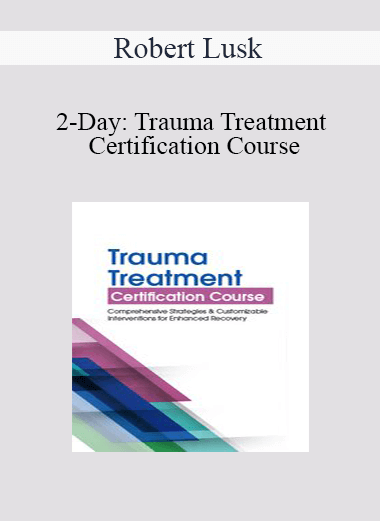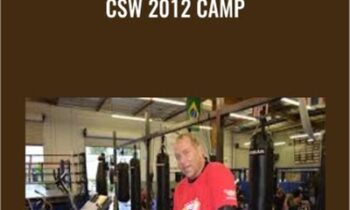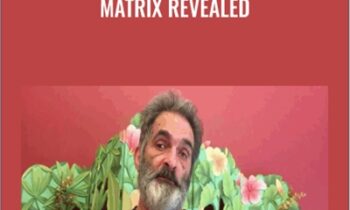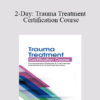$439.99 Original price was: $439.99.$83.00Current price is: $83.00.
[Instant Download] – Immediately deliver the download link after receiving the payment
 Purchase this course you will earn 83 Points worth of $8.30
Purchase this course you will earn 83 Points worth of $8.30Elevate your skills with the Robert Lusk – 2-Day: Trauma Treatment Certification Course: Comprehensive Strategies and Customizable Interventions for Enhanced Recovery course, available for just $439.99 Original price was: $439.99.$83.00Current price is: $83.00. on Utralist.com! Browse our curated selection of over 60,000 downloadable digital courses across diverse Health and Medical. Benefit from expert-led, self-paced instruction and save over 80%. Start learning smarter today!
[Instant Download] – Immediately deliver the download link after receiving the payment
Purchase Robert Lusk – 2-Day: Trauma Treatment Certification Course: Comprehensive Strategies and Customizable Interventions for Enhanced Recovery courses at here with PRICE $439.99 $83
- Faculty:
- Robert Lusk
- Duration:
- 12 Hours 26 Minutes
- Format:
- Audio and Video
- Copyright:
- Jan 21, 2019
Description
Handouts
| Manual – 2-Day: Trauma Treatment Certification Course: Comprehensive Strategies and Customizable Interventions for Enhanced Recovery (3.8 MB) | 55 Pages | Available after Purchase |
Outline
Trauma Impact: Summary of the Research
- Definitions & concepts
- Short term and long term effects (the ACE study)
- The “good” and “bad” news about trauma exposure
- Limitations of the research
Assessment and Diagnosis of Trauma
- Assessment of trauma in children, adolescents and adults
- Trauma-& Stressor-Related Disorders in the DSM-5
- What’s still missing from the DSM-5®?
- Common pitfalls in diagnosis
- My “favorite” diagnosis & why to use it frequently
Address Trauma’s Impact on Neurobiology
- Major areas of impact
- The 3-part brain (or upstairs/downstairs brain)
- Neurologically-related issues in trauma survivors
- ”Arrested Development”
- ”Hair Trigger” threat response
- Cognitive, academic, & work-related problems
- Relationship problems
- The arousal continuum
- Dissociation
Evidence-based Treatments vs. the “Real World”
- What does “evidence-based” mean in trauma treatment?
- Components of evidence-based treatments
- The evidence-based components approach
Points of Intervention in Trauma Treatment
- Main entry points: immediate support vs. trauma treatment
- Psychological first aid
- Stages of trauma-focused treatment
- What can you do if your client isn’t emotionally or physically safe?
- Trauma-Focused Cognitive-Behavioral Therapy: The “Gold Standard”
- Case examples
- ”Amanda”: 7-year-old girl with sexual abuse and complex family issues
- ”Phil”: mid-30s man whose son died while in his care
Address Critical Domains in Trauma Treatment
- The Physiology Domain
- Sleep
- Nutrition and hydration
- Sensory needs and interventions
- Medications, supplements, & nontraditional interventions
- Physical activity/exercise
- ”Amanda” and “Phil” and the physiology domain
- The Relationship Domain
- The Attachment, Regulation, & Competency (ARC) model (for youth)
- Teaching caregiver emotional control (for caregivers of youth)
- Build attunement (for caregivers of youth)
- Positive discipline (for caregivers of youth)
- Build the therapeutic alliance
- Build a support network
- Implement routines & rituals
- ”Amanda” and the relationship/attachment domain
- ”Phil” and the relationship domain
- The Emotional Regulation Domain
- Feelings identification and expression
- Use SUDs scales
- Grounding & self-soothing techniques
- The “Comfort Kit”
- Add attunement!
- Apply Bruce Perry’s Neurosequential Model of Therapeutics™
- NMT assessments
- NMT: Interventions by developing age
- ”Amanda” and “Phil” and the emotional regulation domain
- The Cognitive Domain
- Teach and practice problem-solving
- Teach and practice mindfulness
- Address distorted cognitions: Most common targets of cognitive processing
- Cognitive processing: how to modify problematic thoughts
- Use the Franklin Method
- ”Amanda” and “Phil” and the Cognitive Domain
- The Identity Domain
- Focus on identity and sense of self
- Build on existing strengths
- The Life Book approach
- Exercises to improve identity
- ”Amanda” and “Phil” and the identity domain
Additional Components for the 3 Stages of Trauma Recovery
- Stage One: Safety & Stabilization
- Establish rapport
- Education of the client about effect of trauma
- Safety plans
- Trauma-specific areas of focus
- Sexual abuse for “Amanda”
- Triggers for “Phil”
- Stage Two: Process the Past Trauma
- Preparation
- Create the trauma narrative
- Play and verbal-based methods of creating the trauma narrative
- Process of constructing a trauma narrative
- When is your client finished with Stage Two?
- Process “Amanda’s” trauma (play therapy “narrative”
- Process “Phil’s” trauma (verbal narrative)
- Stage Three: Reconnection:
- Consolidate/internalize coping skills
- Enhance positive emotions
- Making meaning of the trauma
- Facilitate reconnection to daily activities
- Enhance current relationships
- Prepare for future safety and triggers
- Posttraumatic growth
- Reconnection for “Amanda” and “Phil”
Resiliency and Protective Factors
- Research on resiliency and protective factors
- The top protective factors for trauma
- Build resiliency
Faculty
Robert Lusk, PhD Related seminars and products: 2
Robert Lusk, PhD, has devoted his career to working with trauma survivors and their families, and providing training and consultation to parents, military families, and professionals on trauma-related issues, parenting special needs children, attachment disorders, psychotropic medications, reintegration after deployment, and psychiatric disorders. For the past 26 years, Dr. Lusk has served as clinical director at The Baby Fold. There, he designs and implements new programs, and provides clinical supervision, consultation and oversight to all the agency’s treatment programs.
Dr. Lusk completed a full-time internship at the Brentwood Veterans Administration Medical Center in Los Angeles, where he focused on PTSD treatment for combat veterans. He has continued to provide supervision, training, and treatment for veterans and other adult trauma survivors for the past 30 years.
Dr. Lusk also instructs courses at Illinois Wesleyan University and has been actively involved in investigative research on trauma for over 30 years, including studies of treatment approach efficacy and cognitive and school-related effects of trauma. He has published several journal articles and book chapters on understanding and treating trauma.
Dr. Lusk earned his Master’s and Doctoral degrees in clinical psychology from the University of California at Los Angeles and has trained in a variety of interventions including Trauma-Focused Cognitive Behavioral Therapy, the Attachment, Regulation, and Competency (ARC) model, Collaborative Problem-Solving, couples and family therapy, Trust-Based Relational Intervention, and Eye Movement Desensitization and Reprocessing (EMDR).
Speaker Disclosures:
Financial: Robert Lusk is an adjunct assistant professor at Illinois Wesleyan University. He has an employment relationship with The Baby Fold. Dr. Lusk receives a speaking honorarium from PESI, Inc.
Non-financial: Robert Lusk has no relevant non-financial relationship to disclose.
Purchase Robert Lusk – 2-Day: Trauma Treatment Certification Course: Comprehensive Strategies and Customizable Interventions for Enhanced Recovery courses at here with PRICE $439.99 $83
Cultivate continuous growth with the Robert Lusk – 2-Day: Trauma Treatment Certification Course: Comprehensive Strategies and Customizable Interventions for Enhanced Recovery course at Utralist.com! Unlock lifetime access to premium digital content, meticulously designed for both career advancement and personal enrichment.
- Lifetime Access: Enjoy limitless access to your purchased courses.
- Exceptional Value: Benefit from savings up to 80% on high-quality courses.
- Secure Transactions: Your payments are always safe and protected.
- Practical Application: Gain real-world skills applicable to your goals.
- Instant Accessibility: Begin your learning journey immediately after buying.
- Device Compatible: Access your courses seamlessly on any device.
Transform your potential with Utralist.com!
Related products
Health and Medical
‘Quantum’ Chakra Clearing and Balancing Series – Jonette Crowley
= 52 Points
Health and Medical
= 29 Points
Health and Medical
= 33 Points
Health and Medical
= 35 Points
Health and Medical
= 28 Points
Health and Medical
= 72 Points
Health and Medical
“Male Physique Training Templates” – Renaissance Periodization
= 42 Points
Health and Medical
EXOS Presents: Advanced Strength and Power Featuring Dan Baker
= 53 Points

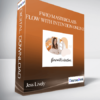
![[Audio] EP00 Keynote 02 - The Social Psychology of Self-Persuasion - Elliot Aronson](https://utralist.com/wp-content/uploads/2023/04/Audio-Only-EP00-Keynote-02-The-Social-Psychology-of-Self-Persuasion-Elliot-Aronson-Ph.D-100x100.png)
